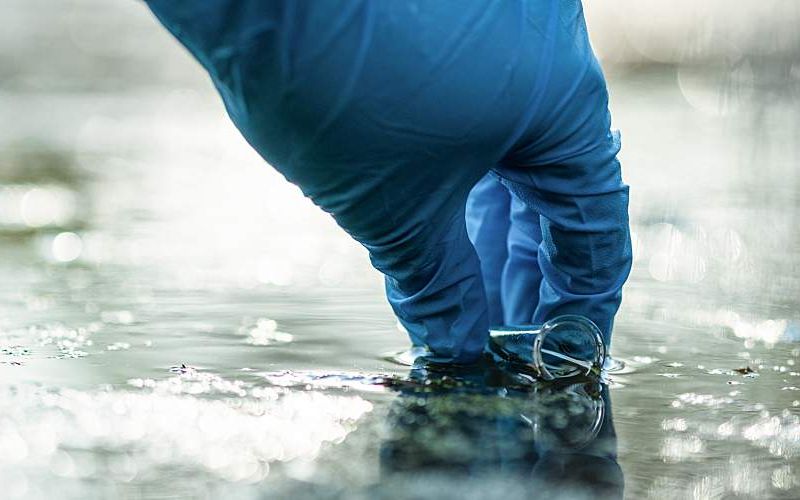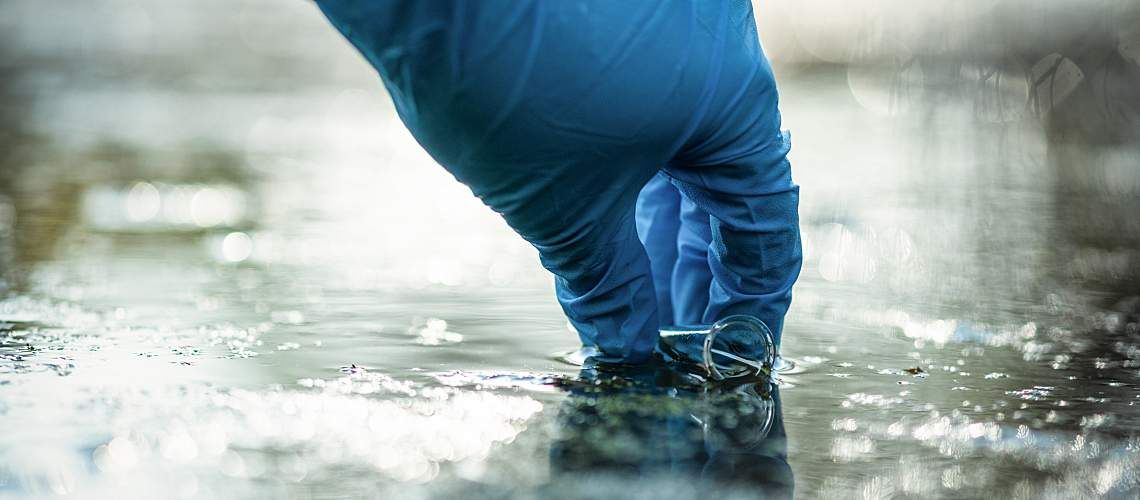International Conference Showcases Latest Research on Environmental Monitoring for Legionella


The International Conference on Legionella brings together researchers, clinicians, and policymakers from around the world to discuss all aspects of Legionella and Legionnaires' disease. The conference hosts detailed discussions on the bacteria itself; its pathogenesis, evolution, and ecology; diagnostic methods; and risk assessments. Environmental monitoring for Legionella is a key component of risk assessment and prevention and was a prominent topic during the 10th conference, which took place in September 2022.
Leading Experts Discuss Environmental Monitoring
A panel of international experts on Legionella risk assessment discussed environmental monitoring for Legionella in depth. Experts included:
- Dr. Maria Luisa Ricci, director of the Italian National Reference Laboratory for Legionella and chairperson of the European Society of Clinical Microbiology and Infectious Diseases Study Group for Legionella Infections
- Dr. Michele Prevost, a member of the National Academy of Sciences Committee on Management of Legionella in Water Systems and a recipient of the American Water Works Association AP Black award
- Dr. Hiroaki Inoue, technical manager for microbiological testing at Tsukuba Research Laboratories and a member of the editorial committee of the Japanese Guideline for Prevention of Legionnaires' Disease
- Dr. Sebastian Faucher, a member of the faculty of Agricultural and Environmental Sciences at McGill University
- Yusuke Yodotani, a bacteriologist at Kawasaki City Institute for Public Health and member of Health Labour Sciences Research on Legionella in Japan
While the panel covered a wide range of topics, one key discussion point was the drawbacks of traditional methods of detecting Legionella. The panelists agreed that, despite the importance of environmental monitoring, widely used spread plate methods are too complicated and time-consuming. They highlighted the inherent variability of spread plate methods, pointing out that analysts must choose from 14 different procedures when following ISO 11731. This leads to significant differences in results, even when the same sample is sent to different labs. Panelists also noted how the many different steps involved in plate culture methods lead to lower recovery of Legionella, and the growth of competing organisms can also obscure Legionella or lead to entirely uninterpretable results.
All of the panelists had experience with Legiolert—a Legionella test based on liquid culture launched in 2016 to address the shortcomings of traditional spread plate methods. They agreed the simple procedure was an important development for environmental monitoring for Legionella. The panelists suggested that the simplified workflow was a key factor leading to higher recovery of Legionella when compared to spread plate methods.
Extensive Research on Liquid Culture Testing
All of the panelists had conducted research comparing Legiolert to other Legionella detection methods and shared that research during the conference. Examples included:
- A study evaluating seven different methods for detecting L. pneumophila found Legiolert and flow cytometry to provide the most accurate and precise results.
- A 34-lab study in Italy, which found Legiolert to be a suitable alternative to ISO 11731.
- A study of Japanese bathing water demonstrating that Legiolert is an appropriate assay for that matrix, with a very low rate of false positives.
- A study demonstrating that Legiolert detects all known subspecies of L. pneumophila and produces isolates that can be stored for a long time.
Monitoring for L. pneumophila vs. Culturable Legionella Species
The Legiolert liquid culture test is specific to L. pneumophila—it doesn't detect non-pneumophila Legionella species. Whether environmental monitoring should target L. pneumophila or all culturable Legionella species was also a key discussion point at the conference.
Legionella experts from across Europe discussed this topic in the context of the new Drinking Water Directive, which will require environmental monitoring for Legionella. Dr. Paul van der Wielen, an expert from renowned research institute KWR, explained how the Dutch government plans to require monitoring for only L. pneumophila in all buildings except hospitals. The study demonstrated a very low health burden from non-pneumophila Legionella species and that monitoring all culturable Legionella species would have a limited benefit to public health in the Netherlands.
Dr. Philippe Hartemann, a distinguished professor of the School of Medicine at Lorraine University and a member of several risk assessment committees in France and around the world, shared the history of French Legionella regulation. Regulations in France changed from requiring monitoring for all culturable Legionella species to monitoring specifically for L. pneumophila after 10 years of regulation. The result of that switch, according to Dr. Hartemann, has been a significant benefit to public health.
Dr. Martin Exner, managing director of the Institute for Hygiene and Public Health at the University of Bonn and WHO Collaborating Centre for Health Promoting Water Management, also presented during the conference. He highlighted a German study that demonstrated that the presence of a specific type of L. pneumophila led to Legionnaires' disease risk, while the overall concentration of all Legionella species wasn't relevant. He suggested that German regulators should consider focusing regulation on L. pneumophila rather than all culturable Legionella.
The Cutting Edge of Environmental Monitoring
The importance of environmental monitoring was reiterated throughout the conference. Attendees heard leading experts from around the globe discuss the future of environmental monitoring. These insights and discussions have critical implications for lab managers, who can benefit from the latest thinking and research on testing methods.
